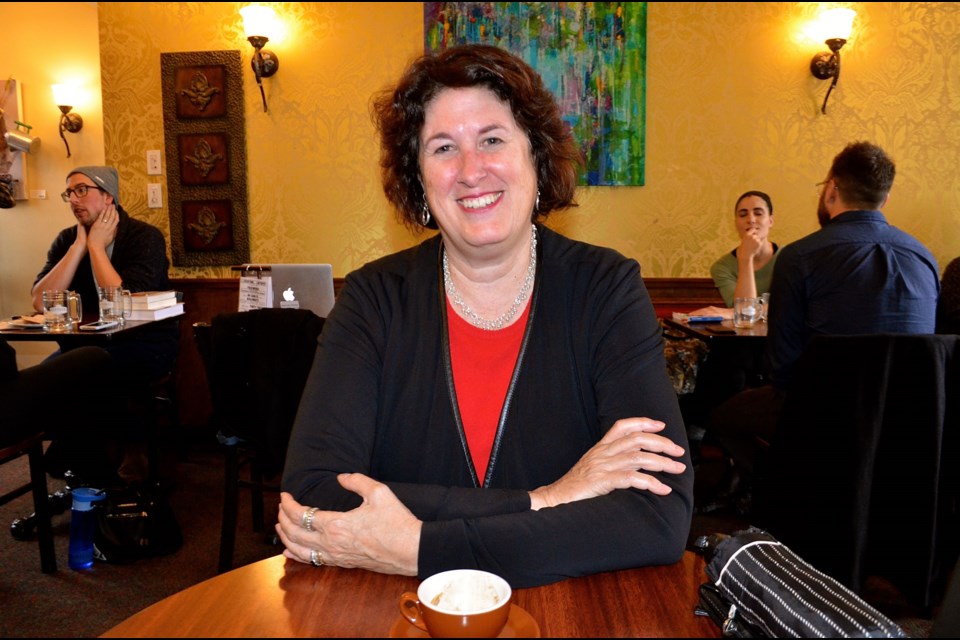Climate change and energy policy were big issues during the recent federal election campaign and the renewed focus was a hopeful sign for former Guelph mayor Karen Farbridge.
“I think the impacts of climate change are becoming more real to everybody every day,” said Farbridge. “The science 30 years ago was not much different than it is today, but the impacts were not as far along. People are feeling and seeing that more today than they were 30 years ago.”
Farbridge was Guelph’s first woman, as well as its second longest serving, mayor and during her three terms in office she led a number of environmental and sustainable energy initiatives. Her passion for those issues has continued through her work as a consultant with Karen Farbridge & Associates.
“I am fortunate because I get to work in the areas that have been my passion all my life,” she said. “I have always believed that so many of the solutions to environmental and social issues are found in our communities so, I have continued to work with communities and that feels really good.”
Farbridge said that fewer people today deny the threat of climate change but there are still obstacles to taking the needed action.
“It is definitely not a technical issue,” she said. “I would say the status quo is the biggest obstacle. We’ve had an energy system and it has served us well for many years. We have built our economies and our quality of life around it. There are policies and ways of interacting with that system that we have become accustomed to and we need to slowly change those.”
Growing polarization over the issue of climate change and partisan politics in general has made consensus building a challenge.
“What I enjoyed so much about municipal politics was that there weren’t parties and you could work with people across the political spectrum on things that made a difference in people’s lives,” she said. “I think we are going through considerable economic change and during those times the status quo comes out in funny ways and one of those ways is polarizing because by polarizing it stops things from moving forward. What they don’t realize is that the status quo still leads to change just not the change you want.”
Farbridge draws on her unique perspective and experience in municipal politics and the skills and experience of her associates to engage communities in the process.
“I work with a group of technical people out of the US, Germany and Denmark,” she said. “They provide the analytical piece to the story and my work is with the community and engaging them in understanding what the data is telling us about their community – understanding and identifying what are the priorities that particular community wants to focus on in terms of reducing emissions.”
Farbridge was born in Woking, England the oldest and only girl of three siblings. When she was three-years-old her father moved the family to Toronto where he worked as an aeronautical engineer for De Havilland’s Avro Arrow program.
She moved to Guelph in 1979 to study biology at the University of Guelph where she earned a B.Sc, an M.Sc and a PhD.
During her time at the U of G she volunteered with the Ontario Public Interest Research Group OPIRG where she met her spouse Peter Cameron. She has a 30-year-old son Graeme from a previous marriage.
In 1991, Farbridge ran unsuccessfully for a seat on city council in Ward One. She ran again in 1994 for Ward Two and won. That was followed by another win 1997.
In 2000 she became Guelph’s first woman mayor and served one term before losing in 2003 to Guelph’s second woman mayor Kate Quarrie.
Farbridge ran and won again in 2006. She held on for two terms losing to Cam Guthrie in 2014.
Farbridge learned a lot during her time as mayor about the role municipal government can play in improving people’s lives and is proud of Guelph’s reputation as an independent leader in environmental initiatives.
“Guelph was the first community in Canada to have curbside composting and now you go into most communities and they are rolling out their green bins,” she said. “Our water conservation and efficiency strategy is still ahead of its class. As water becomes a bigger issue particularly with climate change you are seeing these conversations happening all over.”
She said her goal is to help communities build their own healthy and sustainable energy futures regardless of what party is in power at the federal and provincial level.
“If you are doing a good job in politics you are working to change systems for the better,” she said. ”Not change for change’s sake but if the status quo is not working for people it needs to change so it delivers better results for people. That’s what it is all about.”